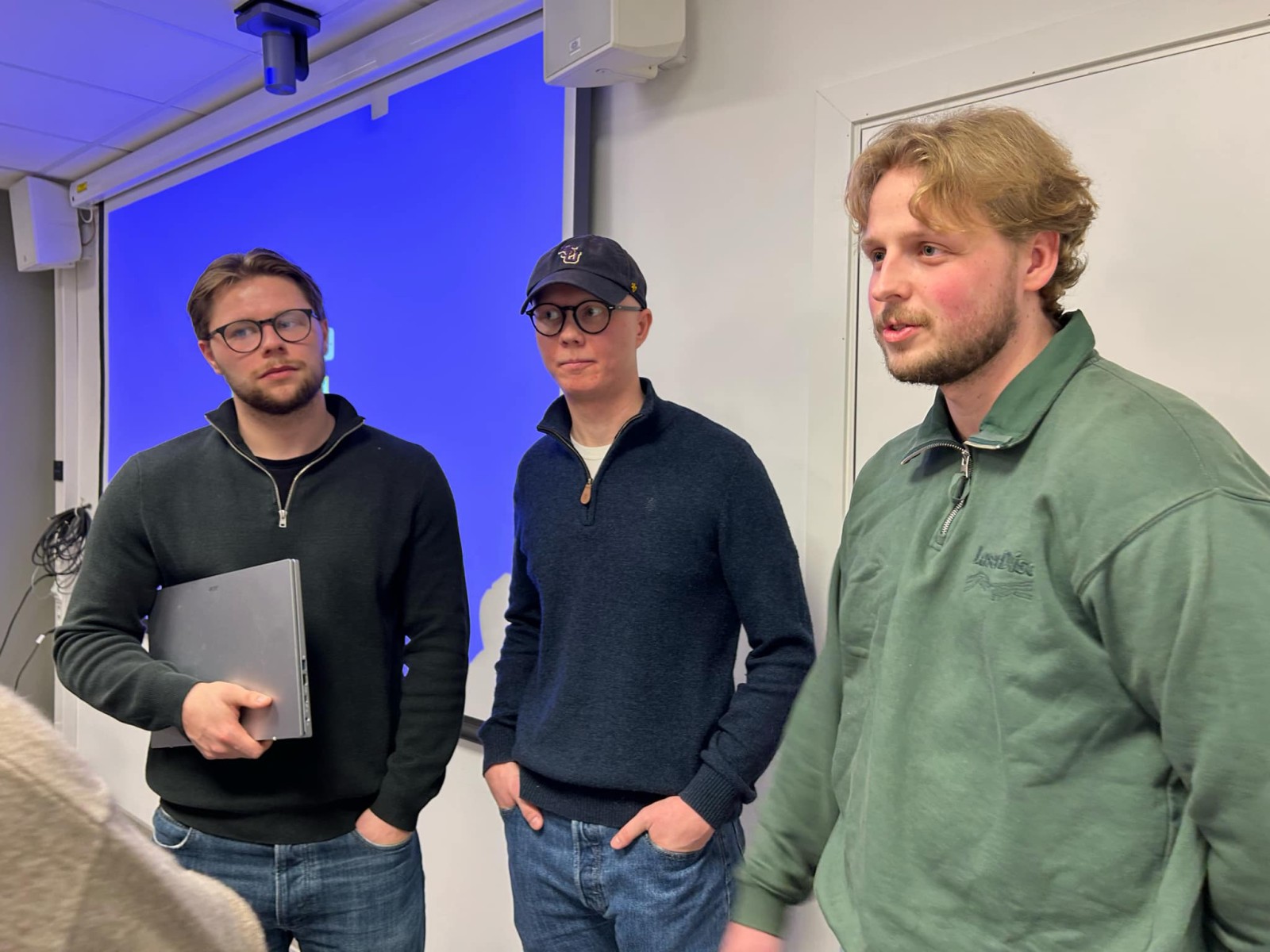In the fall of 2024, a student group at UiA used the Student Well-Being project as a case study. The group, consisting of Tobias Manskow, Matias Garfield and Rasmus Helle, investigated how well-being and belonging can be improved for students in Kristiansand. The semester project concluded with a presentation to the Student Well-Being partners, where the student group presented their findings and solutions.
The course " Co-creation - theory in practice " aims to promote innovation and collaboration across disciplines, sectors and organizations in a regional context. Students learn to collaborate with different professional groups, analyze complex challenges, develop solutions and reflect on their own professional contribution.
At the start of the semester, project manager Olea Magdalene Norset presented the purpose and objectives of Student Well-being to all the students in the course, and along the way she has provided information and support to the group that worked with Student Well-being as a case.
Based on the project's goals, the student group chose to work on the themes of “information for students” and “well-being and local belonging”. The group wanted to put the students' perspective at the center, and through the use of "design thinking" they have focused on the users' needs and desires.
The group has conducted qualitative interviews with both students and stakeholders to gain insight into challenges related to well-being and communication. The interviews revealed several key problem areas, including communication failures between stakeholders and students, conflicts of interest that hinder neutrality, and a lack of visibility of student democracy.
“Through this project, we have learned the value of putting the user at the center. We also believe that stakeholders can learn a lot from listening to what students have to say and what they want, instead of letting principles and self-interests get in the way of making things happen,” they say.
To address these challenges, the group proposes a new common digital platform, the app “Triv”, which gathers all information aimed at students in Agder in one place. The solution includes a common event calendar for all events of interest to students, a visible student newspaper with news and information, and a more accessible student democracy that gives students a stronger voice.
“We believe that compromises must be made and a neutral platform that is not governed by values or interests must be found to achieve better collaboration that benefits both stakeholders and students.”
Through the app, students will get a better overview of activities and services, while also being given the opportunity to express their wishes and needs through a feedback function. This can create a greater degree of ownership and belonging, which in turn promotes engagement and well-being. The student group believes that the flow of information for users is simplified by collecting information aimed at students on one common neutral platform. This also gives the user the opportunity to express their opinion through the app, which in turn can provide a greater degree of belonging and ownership.
The student group's work shows how co-creation can create concrete solutions to complex challenges. By collecting information on one neutral platform, communication between stakeholders and students is simplified, which can contribute to increased well-being, better belonging and more engagement. By focusing on the student voice, the project has highlighted the need for collaboration, compromise and innovative thinking.
The student group emphasizes that the biggest challenge they see in implementing such a solution is that the actors must step outside their comfort zone and must break down already existing structures.
"We want to challenge the players to collaborate and communicate better, which requires a lot of time and commitment in the beginning, but which we believe will pay off in the long run," they conclude.
Written by:
Ingvild Rorge
Student consultant
Email address







